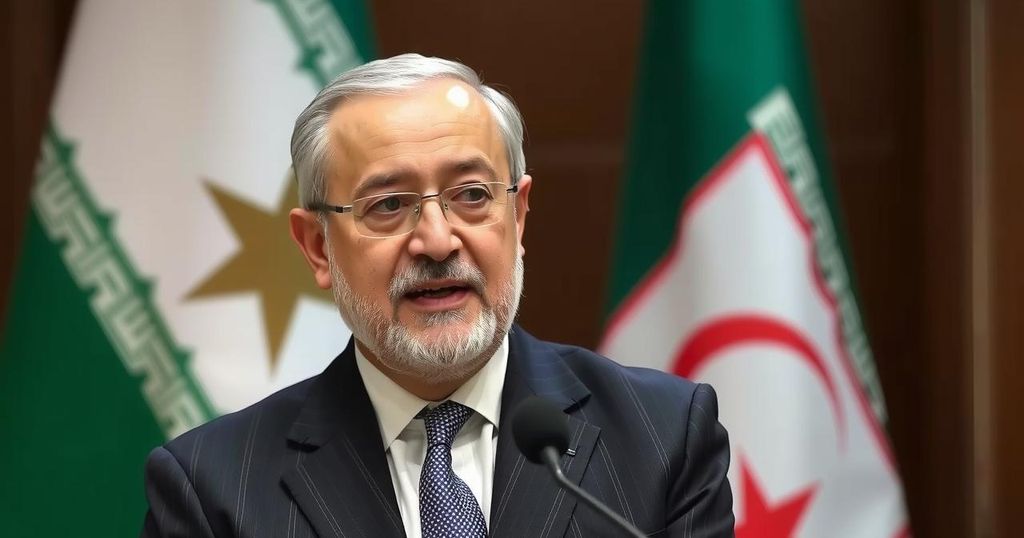Syria’s Foreign Minister has urged Iran to stop spreading chaos and respect Syria’s sovereignty. Asaad Hassan al-Shibani’s statement follows Ayatollah Khamenei’s remarks inciting Syrian youth to resist those responsible for insecurity. Iran’s influence in Syria is critical, particularly regarding the aftermath of the civil war and Assad’s removal, which was a significant setback for pro-Iran factions in the region.
The new Syrian Foreign Minister, Asaad Hassan al-Shibani, has publicly called upon Iran to refrain from actions that could exacerbate chaos in Syria and urged respect for the sovereignty and will of the Syrian populace. In an announcement via X, al-Shibani cautioned Iran against sowing disorder, highlighting that they would be held accountable for any troubling consequences stemming from recent statements made regarding the situation in Syria. His remarks follow a call from Ayatollah Ali Khamenei, the Supreme Leader of Iran, to Syrian youth to stand resolutely against those deemed responsible for the current instability in the country.
This development occurs in the wake of a significant transformation in Syria’s political landscape following a prolonged civil war that culminated in December 2020. The war resulted in the ousting of President Bashar al-Assad, who had been supported by Iran during the conflict. Iran has vested substantial resources in maintaining Assad’s regime due to its strategic interests in the region, particularly in opposing external influences from the United States and Israel. The relationship between Syria and Iran is critical as both countries navigate their respective roles in an ever-complex regional dynamic.
In conclusion, the statements from Foreign Minister al-Shibani underscore a growing sentiment in Syria asserting the need for national sovereignty and the cessation of external interference in its affairs, particularly from Iran. As both nations tread these intricate diplomatic waters, the ramifications of their interactions will be closely watched, potentially influencing future stability in the region.
Original Source: www.hindustantimes.com






